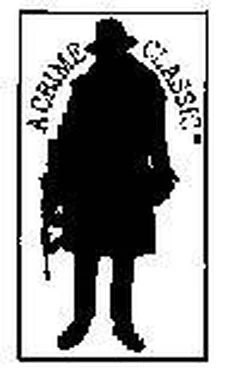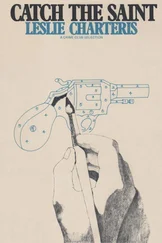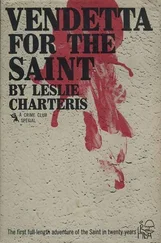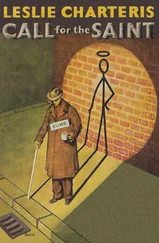Leslie Charteris - Knight Templar, or The Avenging Saint
Здесь есть возможность читать онлайн «Leslie Charteris - Knight Templar, or The Avenging Saint» весь текст электронной книги совершенно бесплатно (целиком полную версию без сокращений). В некоторых случаях можно слушать аудио, скачать через торрент в формате fb2 и присутствует краткое содержание. Город: New York City, Год выпуска: 1989, ISBN: 1989, Издательство: International Polygonics, Ltd., Жанр: Крутой детектив, на английском языке. Описание произведения, (предисловие) а так же отзывы посетителей доступны на портале библиотеки ЛибКат.
- Название:Knight Templar, or The Avenging Saint
- Автор:
- Издательство:International Polygonics, Ltd.
- Жанр:
- Год:1989
- Город:New York City
- ISBN:1-55882-010-8
- Рейтинг книги:3 / 5. Голосов: 1
-
Избранное:Добавить в избранное
- Отзывы:
-
Ваша оценка:
- 60
- 1
- 2
- 3
- 4
- 5
Knight Templar, or The Avenging Saint: краткое содержание, описание и аннотация
Предлагаем к чтению аннотацию, описание, краткое содержание или предисловие (зависит от того, что написал сам автор книги «Knight Templar, or The Avenging Saint»). Если вы не нашли необходимую информацию о книге — напишите в комментариях, мы постараемся отыскать её.
Knight Templar, or The Avenging Saint — читать онлайн бесплатно полную книгу (весь текст) целиком
Ниже представлен текст книги, разбитый по страницам. Система сохранения места последней прочитанной страницы, позволяет с удобством читать онлайн бесплатно книгу «Knight Templar, or The Avenging Saint», без необходимости каждый раз заново искать на чём Вы остановились. Поставьте закладку, и сможете в любой момент перейти на страницу, на которой закончили чтение.
Интервал:
Закладка:
"We'll meet you in London," said the Saint. "As soon as we're off you'd better take Sonia down to the station and wait there for the first train. I don't think you'll have any trouble; but if you do it shouldn't be difficult to deal with it. There's nothing you can be held for. But for God's sake don't say anything about Angel Face or this house—I'd as soon trust that village cop to look after Angel Face as I'd leave my favourite white mouse under the charge of a hungry cat. When you get to town I expect you'll want some sleep, but you'll find us in Upper Berkeley Mews this evening. Sonia knows the place."
Lessing nodded.
"Good luck," he said, and held out his hand.
Simon crushed it in a clasp of steel.
He moved away, held up his handkerchief for a moment to check the wind, and went to clear the chocks from under the wheels. Then he climbed into the front cockpit and plugged his telephones into the rubber connection. His voice boomed through the speaking tube.
"All set, Roger?"
"All set."
The Saint looked back.
He saw Roger catch the girl's hand to his lips; and then she tore herself away. And with that last glimpse of her, the Saint settled his goggles over his eyes and pushed the stick forward; and the tumult of the engine rose to a howl as he threw open the throttle and they began to jolt forward over the grass.
Not quite so damned easy, taking off on a dark night, with the Lord knew what at the end of the run. . . . But he kept the tail up grimly until he had got his full flying speed, and then eased the stick back as quickly as he dared. . . . The bumping lessened, ceased altogether; they rushed smoothly through the air. . . . Looking over the side, he saw a black feather of tree-top slip by six feet below, and grinned his relief. Turning steeply to the west, he saw a tiny speck of light in the darkness beyond his wing tip. The lantern. . . . And then the machine came level again, and went racing through the night in a gentle climb.
The stinging swiftness of the upper air was new life to him. A little while ago he had been weary to death, though no one had known: but now he felt shoutingly fit for the adventure of his life. It might have been because of the fresh hope he had found when there had seemed to be no hope. . . . For he had his chance; and, if human daring and skill and sinew counted for anything, he would not fail. And so the work would be done, and life would go on, and there would be other things to see and new songs to sing. Battle, murder, and sudden death, he had had them all—full measure, pressed down, running over. And her had loved them for their own sake. . . . And his follies he had had, temptations, nonsense, fool's paradise and fool's hell; and those also had gone over. And now a vow had been fulfilled, and much good done, and a great task was near its end; but there must be other things.
"For the song and the sword and the pipes of Pan
Are birthrights sold to a usurer;
But I am the last lone highwayman,
And lam the last adventurer."
Not even all that he had done was a destiny; there must always be other things. So long as the earth turned for the marching seasons, and the stars hung in the sky, for so long there would be other things. There was neither climax nor anticlimax: a full life had no place for such trivial theatricalities. A full life was made up of all that life had to offer; it was complete, taking everything without fear and giving everything without favour; and wherever it ended it would always be whole. So it would go on. To fight and kill one day, to rescue the next; to be rich one day, and to be a beggar the next; to sin one day, and to do something heroic the next—so might a man's sins be forgiven. And there was so much that he had not done. He hadn't walked in the gardens of Monte Carlo, immaculate in evening dress, and he hadn't tramped from one end of Europe to the other in the oldest clothes he could find. He hadn't been a beachcomber on a South Sea island, or built a house with his own hands, or read the lessons in a church, or been to Timbuktu, or been married, or cheated at cards, or learned to talk Chinese, or shot a sitting rabbit, or driven a Ford, or. . . Hell! Was there ever an end? And everything that a man could do must enrich him in some way, and for everything that he did not do his life must be for ever poorer. . . .
So, as the aëroplane fled westwards across the sky, and the sky behind it began to pale with the promise of dawn, the Saint found a strange peace of heart; and he laughed. . . .
His course was set unerringly. In the old days there had been hardly an inch of England over which he had not flown; and he had no need of maps. As the silver in the sky spread wanly up the heavens, the country beneath him was slowly lighted for his eyes; and he began to school Roger in a difficult task.
"You have handled the controls before, haven't you, old dear?" he remarked coolly; and an unenthusiastic reply came back to him.
"Only for a little while."
"Then you've got about half an hour to learn to handle them as if you'd been born in the air!"
Roger Conway said things—naughty and irrelevant things, which do not belong here. And the Saint smiled.
"Come on," he said. "Let's see you do a gentle turn."
After a pause, the machine heeled over drunkenly. . . .
"Verminous," said the Saint scathingly. "You're too rough on that rudder. Try to imagine that you're not riding a bicycle. And don't use the stick as if you were stirring porridge. . . . Now we'll do one together." They did. "And now one to the left. . . ."
For ten minutes the instruction went on.
"I guess you ought to be fairly safe on that," said the Saint at the end of that time. "Keep the turns gentle, and you won't hurt yourself. I'm sorry I haven't time to tell you all about spins, so if you get into one I'm afraid you'll just have to die. Now we'll take the glide."
Then Roger was saying, unhappily: "What's the idea of all this, Saint?"
"Sorry," said the Saint, "but I'm afraid you'll be in sole charge before long. I'm going to be busy."
He explained why; and Roger's gasp of horror came clearly through the telephones.
"But how the hell am I going to get down, Saint?"
"Crash in the Thames," answered Simon succinctly. "Glide down to a nice quiet spot, just as you've been taught, undo your safety belt, flatten out gently when you're near the water, and pray. It's not our aëroplane, anyway."
"It's my life," said Roger gloomily.
"You won't hurt yourself, sonny boy. Now, wake up and try your hand at this contour chasing. ..."
And the nose of the machine went down, with a sudden scream of wires. The ground, luminous now with the cold pallor of the sky before sunrise, heaved up deliriously to meet them. Roger's head sang with a rush of blood, and he seemed to have left his stomach about a thousand feet behind. ... Then the stick stroked back between his legs, his stomach flopped nauseatingly down towards his seat, and he felt slightly sick. . . .
"Is it always as bad as that?" he inquired faintly.
"Not if you don't come down so fast," said the Saint cheerfully. "That was just to save time. . . . Now, you simply must get used to this low flying. It's only a matter of keeping your head and going light on the controls." The aëroplane shot between two trees, with approximately six inches to spare beyond either wing, and a flock of sheep stampeded under their wheels. "You're flying her, Roger! Let's skim this next hedge. . . . No, you're too high. I said skim, not skyrocket." The stick went forward a trifle. "That's better. . . . Now miss this fence by about two feet. . . . No, that was nearer ten feet. Try to do better at the next, but don't go to the other extreme and take the undercarriage off. . . . That's more like it! You were only about four feet up that time. If you can get that distance fixed in your eye, you'll be absolutely all right. Now do the same thing again. . . . Good! Now up a bit for these trees. Try to miss them by the same distance—it'll be good practice for you. ..."
Читать дальшеИнтервал:
Закладка:
Похожие книги на «Knight Templar, or The Avenging Saint»
Представляем Вашему вниманию похожие книги на «Knight Templar, or The Avenging Saint» списком для выбора. Мы отобрали схожую по названию и смыслу литературу в надежде предоставить читателям больше вариантов отыскать новые, интересные, ещё непрочитанные произведения.
Обсуждение, отзывы о книге «Knight Templar, or The Avenging Saint» и просто собственные мнения читателей. Оставьте ваши комментарии, напишите, что Вы думаете о произведении, его смысле или главных героях. Укажите что конкретно понравилось, а что нет, и почему Вы так считаете.












